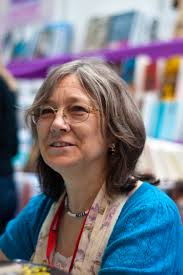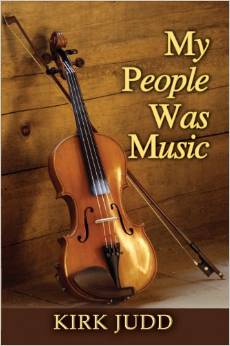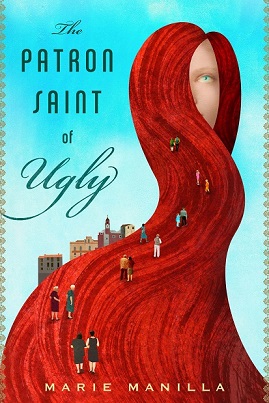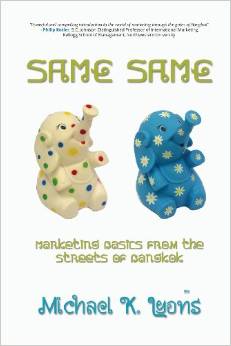Meredith Sue Willis's
Books for Readers # 172
September 5, 2014
When possible, read this newsletter online for updates and corrections.
To create a permanent link to this newsletter, click here.
For Back Issues, click here.
MSW Home
In this Issue:
Fran Simone's Dark Wine Waters Reviewed by Phyllis Moore
Lords of Discipline by Pat Conroy
Under an English Heaven by Alice Boatwright
The Mother Hunt by Rex Stout
The Liveship Novels by Robin Hobb
Masks by Fumiko EnchiThe E-Reader Report with John Birch
Backchannel Report
Things to Read & Hear Online
Announcements and News
For a Free E-mail subscription to this newsletter:
I've done a lot of reading this summer, on my e-reader, in paperback and hardcover, and even on my smart phone-- more than I will report on in this issue. My reading has run the gamut from genre books like Alice Boatwright's new "cozy" mystery (see below) and Robin Hobb fantasies to Helen Benedict's searing Iraq war novel Sand Queen and an excellent nonfiction book on the history of the Comanches.But I want to begin with a book I have not read.My sister-in-law Ann Geller read Donna Tartt's The Goldfinch for her book group this summer. Ann told me that she also read some reviews of the book, and found that about half the reviewers thought it was a modern classic and the other half hated it. She said her own opinion is that "It was 800 pages long and should have been 200." I think it's important to note that my sister-in-law is not intimidated by big books. She reads a lot: fiction for pleasure, but she is also a Ph.D. in philosophy and a student of Talmud, so she has no intrinsic difficulty with large, dense books.The problem, according to her, was what she calls self-indulgence on the part of the author: "The main character walks down the street, and there is an elaborate simile describing each person he passes." To repeat, I haven't yet read The Goldfinch, so I can't comment on it directly, but Ann's remarks started me thinking about a kind of writing that I come across too often in novels praised as brilliant and beautiful. (In fact, for comments on one of these books that I have read, see below). It is a kind of writing that depends on thick layering of figurative language and sense description and aggregation– that is, heaps of detail and metaphor and sometimes also multiple flights along tangential story lines. When this kind of writing gets out of control, reading it is like eating rum-soaked fruit cake with pecans and currants and candied cherries, and then topping it with both hard sauce and full-fat vanilla ice cream.This is not meant to be against richness, or against imaginative flights of language or experimentation. What it is against– and very much against– is doing these things lazily or ineptly, or self-indulgently. The longer I read, the more I have become demanding of quality and precision in long sentences and long books. This may have something to do with a cultural restlessness that has come along with visual media and Twitter and e-mail and blogs. I also spend a great deal of time reading student writing. But whatever the reasons, I am impatient with sloppy prose.All of us who write ought to do a lot of cutting and polishing, of course, but the kind of revision I am talking about here is not only out of respect for the reader's time. It is also essential for the writer's own art. The initial foray into the material you want to write needs to be drafted with whatever tools work for you. If long pages of extremely detailed sense impressions or similes help you feel the texture of the world you're creating, write that way. If you are an outliner who has to get the plot down first and then fill in the details, do that.It's what comes next, however, that moves the writing to another level. I've called this Deep Revision, and it's the time when you refine and make choices, but also the time when you make new discoveries and come up with new ideas and material. In fact, long before I start polishing, I cut whole characters and scenes, add new scenes, move scenes, and try to face the fact that a lot of the material that helped me reach my characters and their world is a kind of scaffolding that should be taken down. For me as a writer, these second and third and thirteenth go-throughs are where the value is added. I don't want to denigrate the wonder of initial inspiration: if you're a writer, you live for inspiration. But for me, equally satisfying and probably more important are the times when I am discovering what underlies the initial vision, when I am adding more, going deeper, diving under-- and then, when that's all done, cutting away the metaphors that don't fit anymore, getting rid of everything that isn't necessary to express what I've discovered.Do some writers get it right the first time round? Of course. Do some truly need to polish the first paragraph before they can write the second? Is the style of some writers all about metaphor to the exclusion of almost everything else? Yes and yes.There are such writers, but probably not as many as claim to be. What infuriates me is the grandiosity of believing every word you write is sacred and should be displayed for admiration and/or worship.Fran Simone's Dark Wine Waters: My Husband of a Thousand Joys and Sorrows, Reviewed by Phyllis Moore.
When addiction is the elephant in the room most families are thoroughly confused about where to turn or what to do. Fran Simone shares her experiences in her candid memoir DARK WINE WATERS: MY HUSBAND OF A THOUSAND JOYS AND SORROWS. The titlespeaks volumes: The joys of marriage become sorrows as a well-educated wife watches her beloved lawyer husband's progress from an occasional drink to full-blown alcoholism. The parade of broken promises, blame, guilt, lies, and hopes for sobriety are a drum beat through the years. Eventually a line is drawn: Therapy and an inpatient stint are a last resort. Sadly, relapses, deceptions, promises, lies, arguments, blackouts, automobile accidents, and loss of a driver's license result in an unexpected drinking bout on Christmas Eve and a totally unanticipated Christmas Day suicide. Simone, suddenly a grief stricken widow, is not just a widow. She is a mother, a professor in a small city, and the widow of an alcoholic lawyer who committed suicide in his downtown office. The feeling of stigma is palpable. How can a survivor cope? Simone shares what she learned when she marshalled her resources and joined a support group of survivors of the suicide of a loved one. Aided by this, and other support groups, her recovery process included writing this memoir as an "…act of discovery". In the discovery and recovery process she learned to forgive her husband and herself. As a result, here is her memoir, a gift "…for all who know the joys and sorrows of loving an addict." She is a generous and courageous writer.
Dark Wine Waters: My Husband of a Thousand Joys and Sorrows (2014) by Fran Simone, Ph.D. is published by Central Recovery Press, Paperback, $15.95. For more on this book, read Library Journal: http://centralrecoverypress.com/books/blog/dark-wine-waters-reviewed-in-the-library-journal/
SHORT TAKES (by MSW Unless Otherwise Noted)
The Lords of Discipline by Pat Conroy
Here's a case in point about self-indulgence and bloat: Pat Conroy's novel about the Citadel and Charleston, South Carolina. Yes, it's gripping. Yes, it has all kinds of cinematic moments-- and wait! There was a movie made of it in the eighties! But, oh my, does this guy overdo the suffereing and navel gazing of the narrator.
I read somewhere that Conroy is a big fan of Thomas Wolfe, which appears to mean you get to dump out gorgeous metaphors by theton. Much of the novel seems to be about narrator Will's confusion, his love-hate for "The Institute," and his feelings of not belonging. When this is dramatized, it's terrific stuff. When it's told over and over again, it gets annoying.
I liked the insider's look at The Institute. The cadets were extremely well done, including the black cadet Pearce who Will is supposed to keep in school in the face of racist efforts to intimidate him into leaving. I was also willing to accept the secret society of the Ten, whether or not all the the cloak and dagger stuff and violence is based on facts, but I didn't believe the love interest, Annie Kate. In Conroy's effort to write a Big Book, I think he pulled together a few too many threads at the end, and they didn't all work. But the heart of the story, if you can lay aside the bloat and the repetitive descriptions of Charleston, is quite strong.
Frank Bruni says in a New York Times review of another Conroy book: "Conroy tends to paint in extravagant strokes, and The Death of Santini instantly reminded me of the decadent pleasures of his language, of his promiscuous gift for metaphor and of his ability, in the finest passages of his fiction, to make the love, hurt or terror a protagonist feels seem to be the only emotion the world could possibly have room for, the rightful center of the trembling universe. There's something quintessentially Southern about this, and Conroy is indeed a child of the South. Its mischief and melodrama are in his blood."
Some people really seem to enjoy gorging on this stuff. Personally, when I'm in the mood for violence and Southern-style grotesquerie and drama-- and elaborate metaphors, I'd rather read Cormac McCarthy.
Masks by Fumiko Enchi
This small book was first published in Japan in 1958. I assume I probably missed a lot of the nuances, because of culturalgaps, but I was engaged anyhow. It explicitly (according to commentary) uses as its structure one of the most famous sections of The Tale of Genji. It is about the indirect revenge and the exercise of power by women.
The story includes a lot of men's speculations about women, and the male characters ultimately choose their friendships with one another over lovers. All the characters, in typical Japanese fashion, are presented as highly sensitive to light, seasons, flowers, fabrics, literature etc.
The story centers on two widows, a mother-in-law and her daughter-in-law, who live together with a mysterious third woman in a beautiful home that has a collection of exquisite kabuki masks. It's definitely worth checking out, to see if it suits your taste.
The Magic Ship and Mad Ship by Robin Hobb
I love Robin Hobb's sprawling fantasy world where dragons have a supercilious attitude toward the rest of us and are tended by an adoring semi-human race. In the liveships trilogy, where dragons are always in the background, sea-going vessels have figureheads with human personalities. Each ship is tied to one of the trading families of Bing Town, who are related to the strangely physically changed people of the Wild River. There is also a nicely corrupt emperor who makes bad decisions that threaten the traders, and also a lot of feisty women.
The sea writing is entertaining: storms and sea serpents that are more than they seem. There's also an excellent pirate, determined to be evil but so naturally charismatic that the people around him love him and make him better than he wants to be. He's a kind of heroic-foppish Captain Hook who loses a leg à la Capt. Ahab. I think Hobb must have had a crush in her girlhood on the animated Disney Captain Hook with his Cavalier hair and lacy sleeves.
Hobb offers ethical dilemmas that are surprisingly interesting in the middle of all the action and entertainment. I'm saving the third book for a treat.
The Mother Hunt by Rex Stout
At my husband's family's summer cottage, there is a complete set of crumbling paperback Nero Wolfe mysteries. I reread one of my favorite ones, The Mother Hunt, written in the early nine-teen sixties.Rex Stout takes a lot of time for his set up (no murder till forty or fifty pages in). These are so dependable in their pleasures: narrator Archie Goodwin is always fresh, in at least two ways; Wolfe always sits in his big chair and tries to get out of work and says "pfui!" when he doesn't like how things are going. As always he sets up a few stunts to catch his bad guys without leaving home, if possible, although every few books he reluctantly does leave home, as in this one. Archie has some romance. Wolfe's ego is wounded when someone is murdered on his watch, wonderful rich meals are described, along with Wolfe's orchid gardening. NYPD Inspector Cramer shows up chewing his cigar hoping to catch Wolfe doing something illegal, but of course always admiring Wolfe's slick successes.
It's a lot of fun-- New York City during whatever decade Stout is writing, and oh yes, there's a clever mystery solution, but that's never been why I read mysteries.
Under an English Heaven: an Ellie Kent Mystery by Alice Boatwright
This is Alice Boatwright's "cozy" mystery, set in an English village, with an American protagonist. It has excellent Amazon reviews from the fans of "cozies," which are all set in the English countryside without too much blood and gore and sex. Ellie Kent, the sleuth in this novel, is divorced from a prizewinning poet bounder of a husband and has now married a sweet English vicar. She moves to Little Beecham with him, and tries to follow in the footsteps of his beloved late wife-- but everyone still sees Ellie as a foreigner.
When the deaths begin to pile up, the neighbors and the police tend to think Elliemust be the prime "person of interest" for all sorts of reasons, especially including a book of poems on one corpse written in Italian, and Ellie's ex-husband is Italian-American, and she once in Italy for a few months.
Even if it isn't your special genre, you can't miss the draw of all the tea and cake and crisp autumn air and walks with the dog.
After a while, Ellie begins to try to figure out for herself what's going on, and willfully keeps a lot of information to herself. Needless to say, she gets in trouble, and even begins to think her husband has lost faith in her. She discovers that the first wife, too, has a mystery surrounding her death-- and all the time, you know it's going to come right, and the fun is all in the how, and of course the quirky characters.
THINGS TO READ AND HEAR ONLINE
An interesting article in The New Statesman on the value of fan fiction.
Phyllis Moore points us to an interesting article especially for fans of To Kill a Mockingbird and Harper Lee– but for everyone else too: a personal reminiscence of growing up with Harper and Truman: http://www.storysouth.com/2014/03/harper-lee-and-words-left-behind.html
Jeremy Osner's poems: https://soundcloud.com/the-modesto-kid/the-moment-of-the-poem
A free performance sample from Kirk Judd's My People Was Music! Click here!
John Birch's poem about the Aftermath of 9/11 http://www.johnbirchlive.blogspot.com/
Terrific l story about a family and monkeys from novelist Thaddeus Rutkowski (See review of his novel TETCHED in Issue 170).
Barbara Crooker's poems "Cut" and "At the Poultry Reading" are in the new issue of Light:http://lightpoetrymagazine.com/revamp/barbara-crooker-summer-14/ and "Salt" appears in the late summer anthology of PoetryMagazine.com: http://www.poetrymagazine.com/poets_reunion/ (scroll down for names, and click). Also see Barbara Crooker on Writers Almanac.
Marie Manilla on PBS http://wvpublic.org/post/marie-manillas-patron-saint-ugly
BACKCHANNEL REPORT
Back Channel likes the movie version of The Dollmaker starring Jane Fonda, "who seems a bit miscast, but she does a serviceable job: https://www.youtube.com/watch?v=021jNReJXDQ . Based on the novel, which I'm betting you know about, perhaps have read. This movie isn't bad, especially for TV."
Also, online writing ideas: Write with Fey
JOHN BIRCH E-READER REPORT: TIRED OF PAYING FOR E-BOOKS? GET 'EM FREE FROM YOUR LOCAL LIBRARY.
More than 11,000 public libraries in the US now offer e-books through their websites, for Kindles and Nooks and all shapes and sizes of e-readers, tablets, laptops, smartphones and whatever. They're free, and if you're as surprised as I am by how much I've paid Amazon in the past couple of years, sometimes for books I've abandoned after the first two or three chapters, you may like to visit your local library and ask what they can do for you. They'll be glad to help. Most libraries loan e-books for a couple of weeks, and they'll e-mail you when the loan's about to expire, and again when it's floated off into the ether. If, like my wife and me, you and your partner both have a Kindle on the same account, you can read the same book on your e-readers simultaneously, providing you've both finished it before the loan expires.
Read John's poem about 9/11 on his blog.
WHAT THE NEW YORK TIMES SAYS ABOUT E-BOOK MONTHLY SUBS
NYTimes video on new monthly sub ebook plans: http://www.nytimes.com/video/technology/personaltech/100000003028492/paying-with-your-phone.html?playlistId=100000002688520
ANNOUNCEMENTS, BOOKS RECEIVED, CONTESTS, WORKSHOPS, READINGS ETC.
Ed Davis's new novel: http://www.davised.com/2014/09/israel-jones-live/
Miguel Ortiz's new collection of stories is At Fortunoff's-- "A collection of short stories dealing with the life of New Yorkers in the second half of the twentieth century."
Michael K. Lyons Same Same: Marketing Basics from the Streets of Bangkok is now avaiable. Michael Lyons' Same Same may be about arketing but I was sold by the descriptions of a lively and sensual old city.
Blair Mountain Press is having a 15th anniversary sale-- all books $10.00 each. See the website at www.blairmtp.net. Latest title is Victor Depta's Poems: What Love Is. Here's a sample:
What Love Is on a School Bus
If he were less vulnerable, maybe years later, in his thirties when he'soutgrown his scrawny, miserable fourteen-year-old body and has thestrength for objectivity, he would, embarrassed as adults are by lovebeyond their ironies, spoil the scene with realism
with spring, first of all, comparing the jonquils and forsythias to theyellow school buses, dingy and mud-spattered, and stinking withexhaust behind the vo-tech building
and then spoil the scene by describing the dreary students, drained oftheir joy by the classroom, straggling in lines to board them homeboundto the camp houses, the black dust and burning slag heaps, the tipplesand coal trains in the mountains
and spoil it, then, with all the clichés of the adolescent—the acne, theoily face, the smell of stale, anxious sweat, the burden- some books,the bullying and blustering, the furtive glances, the awkward profanity
he would, as an adult, embellish the scene, perhaps with pathos, or withhilarious, slapstick absurdities and obscene love, but the boy can't betouched by any of that, not even by his fourteen-year-old ignorance, noteven by what would follow, flesh to flesh
I am not my clichésI am not my bodyI am is what love meansI am love's body
Ellen Bass workshsop in November: A weekend workshop with Roger Housden, author of many wonderful books, including his newest, Keeping the Faith Without Religion . See http://www.noetic.org/earthrise/events/ . This weekend promises to be rich with inspiration—and you are likely to write some poems, stories, and reflections that astonish you! WRITING WILD: TO CHANGE YOUR LIFE A Weekend Workshop November 14-16, 2014 Earthrise at Ions, Petaluma, CA. Both beginning and seasoned writers will find this a fertile environment to deepen your relationship with yourself and listen more intimately to your original voice.
DATE: November 14-16, 2014 TIME: The weekend begins with dinner on Friday, November 14th at 6:00 pm and ends after lunch on Sunday, November 16th at 1:30 pm. LOCATION: Earthrise at Ions, Institute for Noetic Sciences, 101 San Antonio Road, Petaluma, CA 94952
FEE AND REGISTRATION: Non-residential: $497 Double room accommodation: $667 Single room accommodation: $847
FOR MORE INFORMATION: Andrea Livingston at IONS: 707-779-8224 alivingston@noetic.org
ABOUT AMAZON.COM
The largest unionized bookstore in America has a webstore at Powells Books. Some people prefer shopping online there to shopping at Amazon.com. An alternative way to reach Powell's site and support the union is via http://www.powellsunion.com. Prices are the same but 10% of your purchase will go to support the union benefit fund.
For a discussion of Amazon and organized labor and small presses, see the comments of Jonathan Greene and others in Issues #97 and #98 .
WHERE TO FIND BOOKS MENTIONED IN THIS NEWSLETTER
If a book discussed in this newsletter has no source mentioned, don’t forget that you may be able to borrow it from your public library as either a hard copy or a digital copy. You may also buy or order from your local independent bookstore. (To find a bricks-and-mortar store, click the "shop indie" logo left).
To buy books online, I often go first to Bookfinder or Alibris. Bookfinder gives the price with shipping and handling, so you can compare what you’re really going to have to pay.
A lot of people whose political instincts I respect prefer the unionized bricks-and-mortar bookstore Powells (see "About Amazon.com" above) that sells online at http://powellsbooks.com.
Another source for used and out-of-print books is All Book Stores. Also consider Paperback Book Swap, a postage only way to trade books with other readers.
If you are using an electronic reader like Kindle, Nook, or Kobo, don't forget free books at the Gutenberg Project—mostly classics, but free, free, free!Kobobooks.com sells books for independent brick-and-mortar bookstores.
RESPONSES TO THIS NEWSLETTER
Please send responses to this newsletter and suggestions directly to Meredith Sue Willis . Unless you instruct otherwise, your responses may be edited for length and published in this newsletter.
BACK ISSUES click here.
LICENSE
Books for Readers Newsletter by Meredith Sue Willis is licensed under a Creative Commons Attribution-NoDerivs 3.0 Unported License. Permissions beyond the scope of this license may be available at http://www.meredithsuewillis.com. Some individual contributors may have other licenses.
To subscribe and unsubscribe, use the form below.
"I hereby release my Goodreads review under a Creative Commons 3.0 Attribution License." -- Joel Weinberger
Friday, September 05, 2014
Books for Readers # 172
Subscribe to:
Post Comments (Atom)










No comments:
Post a Comment